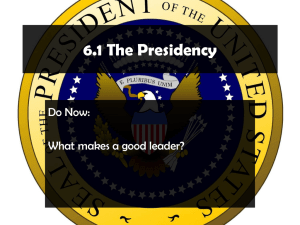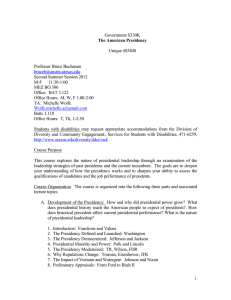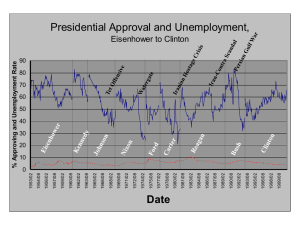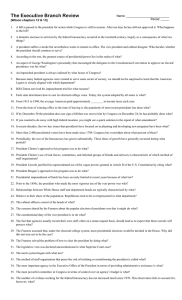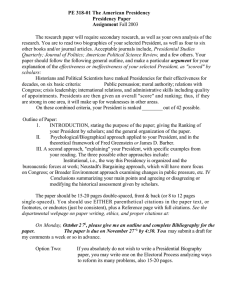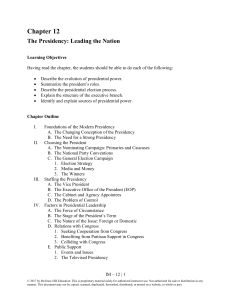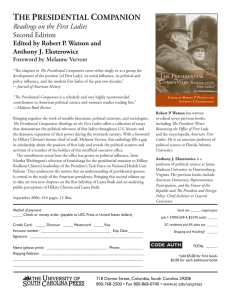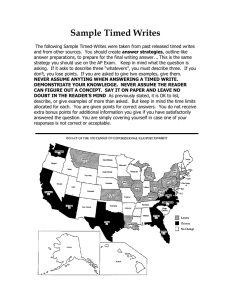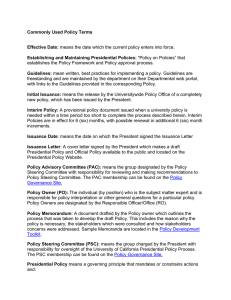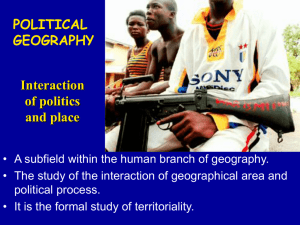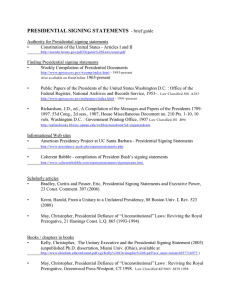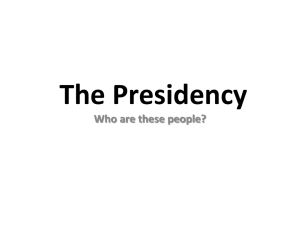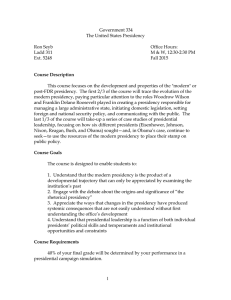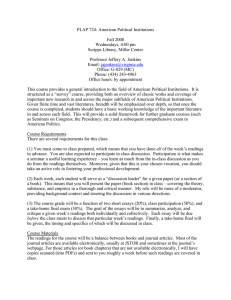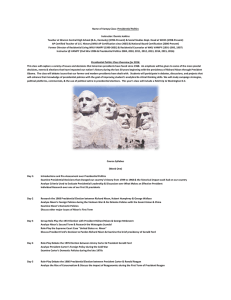PLSC 113 American Government (Honors) Dr. Henschen
advertisement
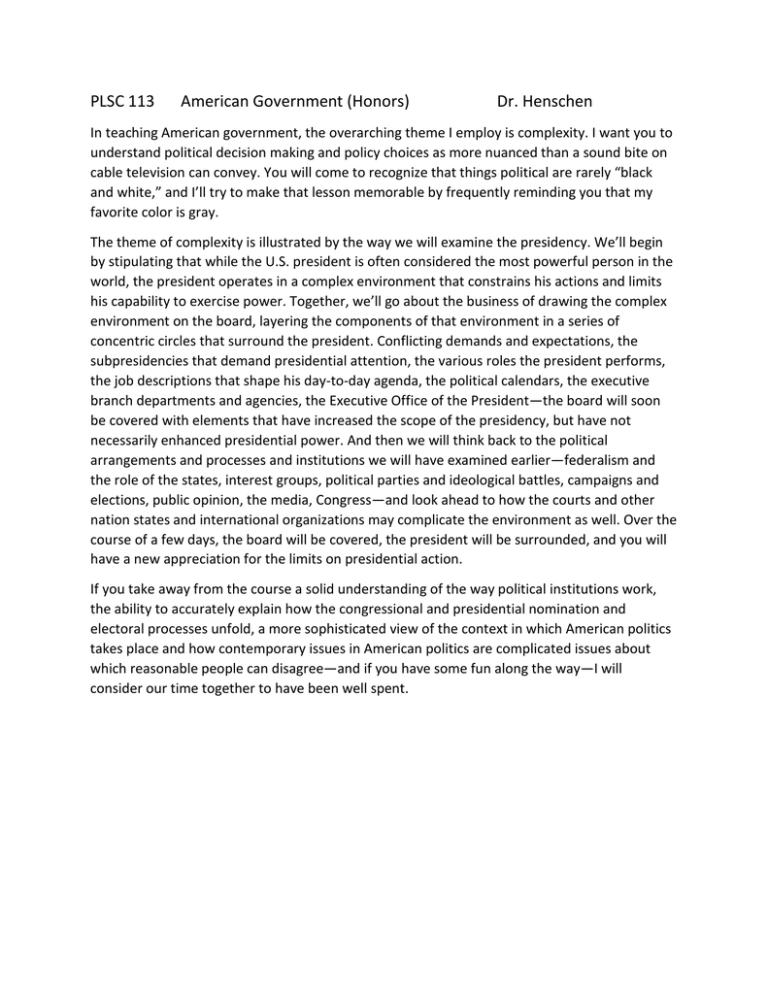
PLSC 113 American Government (Honors) Dr. Henschen In teaching American government, the overarching theme I employ is complexity. I want you to understand political decision making and policy choices as more nuanced than a sound bite on cable television can convey. You will come to recognize that things political are rarely “black and white,” and I’ll try to make that lesson memorable by frequently reminding you that my favorite color is gray. The theme of complexity is illustrated by the way we will examine the presidency. We’ll begin by stipulating that while the U.S. president is often considered the most powerful person in the world, the president operates in a complex environment that constrains his actions and limits his capability to exercise power. Together, we’ll go about the business of drawing the complex environment on the board, layering the components of that environment in a series of concentric circles that surround the president. Conflicting demands and expectations, the subpresidencies that demand presidential attention, the various roles the president performs, the job descriptions that shape his day-to-day agenda, the political calendars, the executive branch departments and agencies, the Executive Office of the President—the board will soon be covered with elements that have increased the scope of the presidency, but have not necessarily enhanced presidential power. And then we will think back to the political arrangements and processes and institutions we will have examined earlier—federalism and the role of the states, interest groups, political parties and ideological battles, campaigns and elections, public opinion, the media, Congress—and look ahead to how the courts and other nation states and international organizations may complicate the environment as well. Over the course of a few days, the board will be covered, the president will be surrounded, and you will have a new appreciation for the limits on presidential action. If you take away from the course a solid understanding of the way political institutions work, the ability to accurately explain how the congressional and presidential nomination and electoral processes unfold, a more sophisticated view of the context in which American politics takes place and how contemporary issues in American politics are complicated issues about which reasonable people can disagree—and if you have some fun along the way—I will consider our time together to have been well spent.
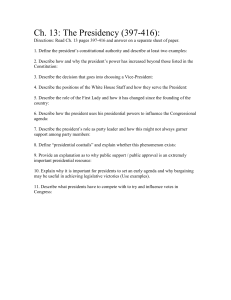
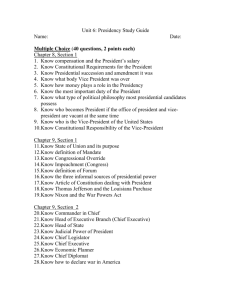
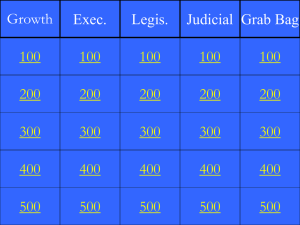
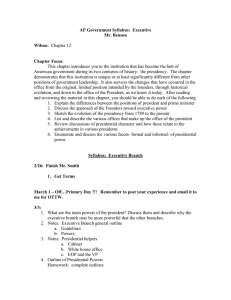
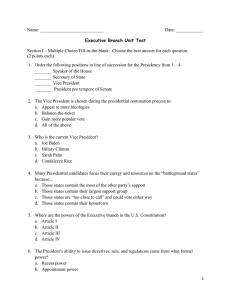
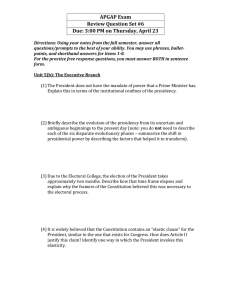
![Divided States of America [AB] 2 (6)](http://s3.studylib.net/store/data/025442511_1-b23d2914472a496e16f2b82548895229-300x300.png)
